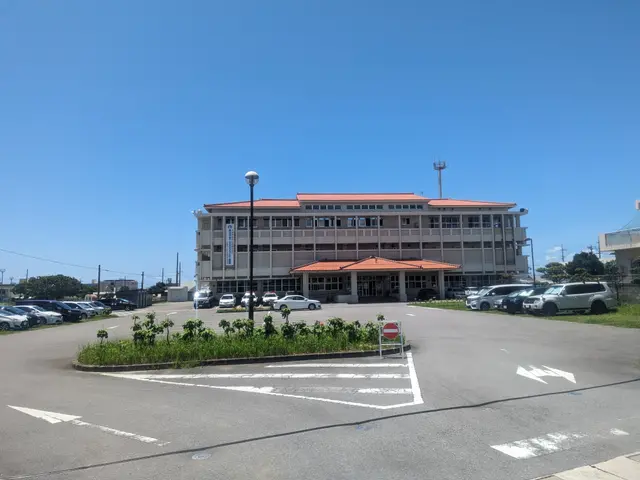The Essential Role of Refrigeration in Civilization's Survival and Its Unexpected Vulnerability Explored
In the face of escalating threats to food security and global health, modern refrigeration systems are undergoing a significant transformation. These systems, essential to maintaining the integrity of food supplies and medical supplies, are confronted with a myriad of vulnerabilities and challenges.
Heat stress and climate impacts are among the most pressing issues. Rising temperatures and longer, hotter summers force refrigeration compressors to work harder, leading to increased energy consumption, accelerated mechanical wear, and the risk of compressor overheating. This, in turn, can result in refrigerant breakdown and electrical component damage. Heatwaves also increase power outages, destabilizing refrigeration reliability[1][5].
Refrigeration systems are integral to food safety, but mechanical failures such as seal leaks and bearing deterioration can cause physical, biological, or chemical contamination. The harsh cleaning environments in food processing make sensor deployment challenging but critical for early detection of such failures[2].
Another significant concern is the growing threat of cyberattacks. Refrigeration and HVAC systems increasingly rely on connected control (SCADA/ICS) networks, which are vulnerable to cyberattacks such as ransomware. These can disrupt operations and supply chains. Poor network segmentation, inadequate access controls, and insufficient bastion host configurations expose critical refrigeration infrastructure to unauthorized access[3][4].
Innovation is the key to addressing these challenges. Electrical and thermal protections are being employed to maintain compressor health and stabilize electrical supply during heat events. AI-enabled predictive maintenance is also being utilized to monitor equipment condition remotely, detecting early signs of mechanical wear or potential contamination risks before failures occur[2].
Ruggedized IoT sensors with high IP ratings are being deployed in food facilities. These sensors can withstand high-pressure, high-temperature washdowns, enabling reliable data collection in hostile environments for precise monitoring[2]. Cyber hygiene and infrastructure security measures, such as strict network segmentation, secure jump servers, and regular cyberattack simulations, are also being implemented to mitigate ransomware and other cyber threats[3][4].
Energy efficiency and condition-based maintenance strategies are also being integrated. IoT and AI are being used to monitor HVAC and refrigeration system components for timely cleaning and maintenance, reducing energy waste, preventing premature failures, and improving system resilience under extended heat stress[5].
By implementing these innovations, we can maintain reliable refrigeration performance, reduce contamination and food spoilage, enhance cybersecurity posture, and address increased operational stresses caused by climate change and evolving threats. This, in turn, supports food security and global health.
Building a more resilient refrigeration system requires rethinking everything from energy sources to supply chain logistics, including local cold storage, off-grid cooling solutions, and better emergency preparedness. When refrigeration fails, the consequences are immediate and devastating, with hospitals losing vital medicines, markets throwing away tons of spoiled food, and families facing hunger and illness.
In urban areas, skyscrapers, supermarkets, and apartment blocks are filled with cooling units working around the clock, straining power grids and increasing the environmental footprint. The quiet hum of the fridge is a fragile thread tying together our health, food, and security, and it is at a crossroads where innovation, awareness, and responsibility will determine whether this miracle can continue.
Scientists and engineers are racing to invent greener, more resilient ways to keep things cool, including solar-powered fridges, alternative refrigerants, and new insulation materials. In developing countries, unreliable infrastructure often prevents vaccines and food from reaching those who need them most. Education campaigns teach people how to store food safely during outages, while governments and companies are investing in smarter, more robust infrastructure.
- To ensure food safety and maintain the stability of medical supplies, it's crucial to address the heat stress and climate impacts on modern refrigeration systems, as they face increased energy consumption, wear, and overheating due to rising temperatures.
- Implementing innovation, such as electrical and thermal protections, AI-enabled predictive maintenance, and ruggedized IoT sensors, can help maintain the health of compressors, monitor equipment condition, and withstand harsh cleaning environments in food facilities.
- Cyber hygiene and infrastructure security measures, like strict network segmentation, secure jump servers, and regular cyberattack simulations, are essential to mitigate ransomware and other cyber threats targeting refrigeration and HVAC systems.
- Energy efficiency and condition-based maintenance strategies, using IoT and AI, can help reduce energy waste, prevent premature failures, and improve system resilience under extended heat stress.
- By building more resilient refrigeration systems, we can reduce contamination, food spoilage, and enhance cybersecurity posture, supporting food security and global health, particularly in urban areas and developing countries with unreliable infrastructure.
- Innovations in green and resilient cooling solutions, such as solar-powered fridges, alternative refrigerants, and new insulation materials, can help address climate change's impact on energy sources and contribute to creating a sustainable lifestyle, promoting health-and-wellness, fitness-and-exercise, and environmental-science, while minimizing the food-and-drink industry's environmental footprint.







